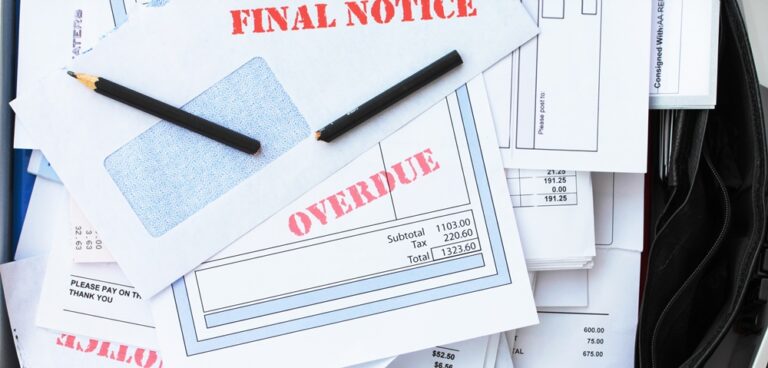The problem of unpaid invoices is probably at least as old as invoices themselves (give or take 28 days for payment). In the vast majority of cases, bills are raised and bills are paid – most of them promptly and within the payment terms.
When invoices are not paid the problem invariably falls into two camps: (1) can’t pay; and/or (2) won’t pay.
Can’t pay is normally a more difficult problem to resolve and to an extent can be mitigated against, by for example, seeking payment in advance of services or running credit checks. Troublingly but inevitably, sometimes “can’t pay” is dressed up as “wont pay” likely in order to buy the debtor more time or to try and discourage the other party from pursuing the debt.
When it comes to won’t pay, the debt is disputed and ultimately if a resolution cannot be found, the debt will either have to be written off as a bad debt or will come before a Judge to decide. Even on the most straightforward case if a dispute over an unpaid debt gets to trial and the parties have engaged lawyers, legal costs can often exceed the sums in dispute. Taking a dispute £50,000 where the claimant is successful, assuming costs of half the value of the dispute (i.e. £25,000) are incurred on each side, the debtor could easily end up paying £100,000 taking into account (a) paying their own costs; (b) a percentage of the claimant’s costs; and (c) interest.
Online Dispute Resolution
Online dispute resolution in some shape or form has often been lauded as a solution to the “litigation problem” of costs and delay. The Courts have in recent years moved to a fully online filing system for most High Court claims and modes of commencing and even managing certain claims online. An online element for dispute resolution is a clearly emerging trend with some very prominent backers including some senior judges.
Recently a proof of concept published by LawtechUK has advanced a platform which would aim to resolve an unpaid debt claim within eight weeks and without the traditional adversarial process as an alternative to the Court route. Crucially the process would be voluntary albeit it is envisaged that it would be preferably agreed in advance via standard terms and conditions – effectively imposed on the party receiving goods/services as a matter of course.
LawtechUK have stated that “[o]ptimal cases for the platform are those of a pure payment dispute in nature, without complex issues of fact, and where the parties are engaging on an elective basis…” with an “…anticipated range of case value is at the lower end – hundreds of pounds up to low tens of thousands…”.
The Platform would be built to take the users through a process which sets out the parameters of the dispute, focuses on the key issues via a “Settlement Builder” giving opportunities to reach agreement. If consensus is not reached in the platform then provided certain requirements are met, the platform funnels into a mediation which, if turned down or unsuccessful, results in an adjudication of the dispute with a binding decision which would be legally enforceable, with a direct link to the Court for that process.
Online -v- Traditional
Costs of litigating a debt claim can be disproportionately high and can be a barrier to enforcement. Those costs are however often driven by the issues (which (rightly or wrongly) would simply not get the same prominence via this model).
A significantly streamlined process which is intended to be party driven, with lawyers (if engaged) operating only in the background, is likely to significantly reduce expense but that will come at the cost of a detailed forensic scrutiny of the issues (both factual and legal). If the Platform comes to fruition in its current guise it will provide a workable, quick and easy route to resolve simple disputes but it may feel like fast and loose justice too – particularly for the losing party (notwithstanding the focus on resolution over determination).
The platform’s architect is (as it ought to be) optimistic about the proportion of payment disputes which will be resolved between the parties through agreement without the need for a determination. The sceptical lawyers amongst us may be concerned that a low risk route to disputing debts may have the unintended opposite effect of defendants rolling the dice on a trumped up reason not to pay and hoping for the best. There is nothing quite like a risk of paying the other side’s legal costs on top of the debt as a deterrent against maintaining (for too long at least) unwinnable arguments.
If done correctly and limited to the “optimal” type of dispute then a Court-linked online dispute resolution platform will service a great deal of disputes which ought never to end up going through legal proceedings.
But parties should be careful to consider whether it is the right forum for their dispute. With a wide-scope programme introducing fixed recoverability for legal costs for most disputes of less than £100,000 scheduled to come into force in April 2023; more cost effective traditional looking routes to legal proceedings will soon be available. Reform via either route is likely to disrupt the market and broaden the options available to would-be litigants.
Liam Tolen – Senior Associate – Ashfords LLP



